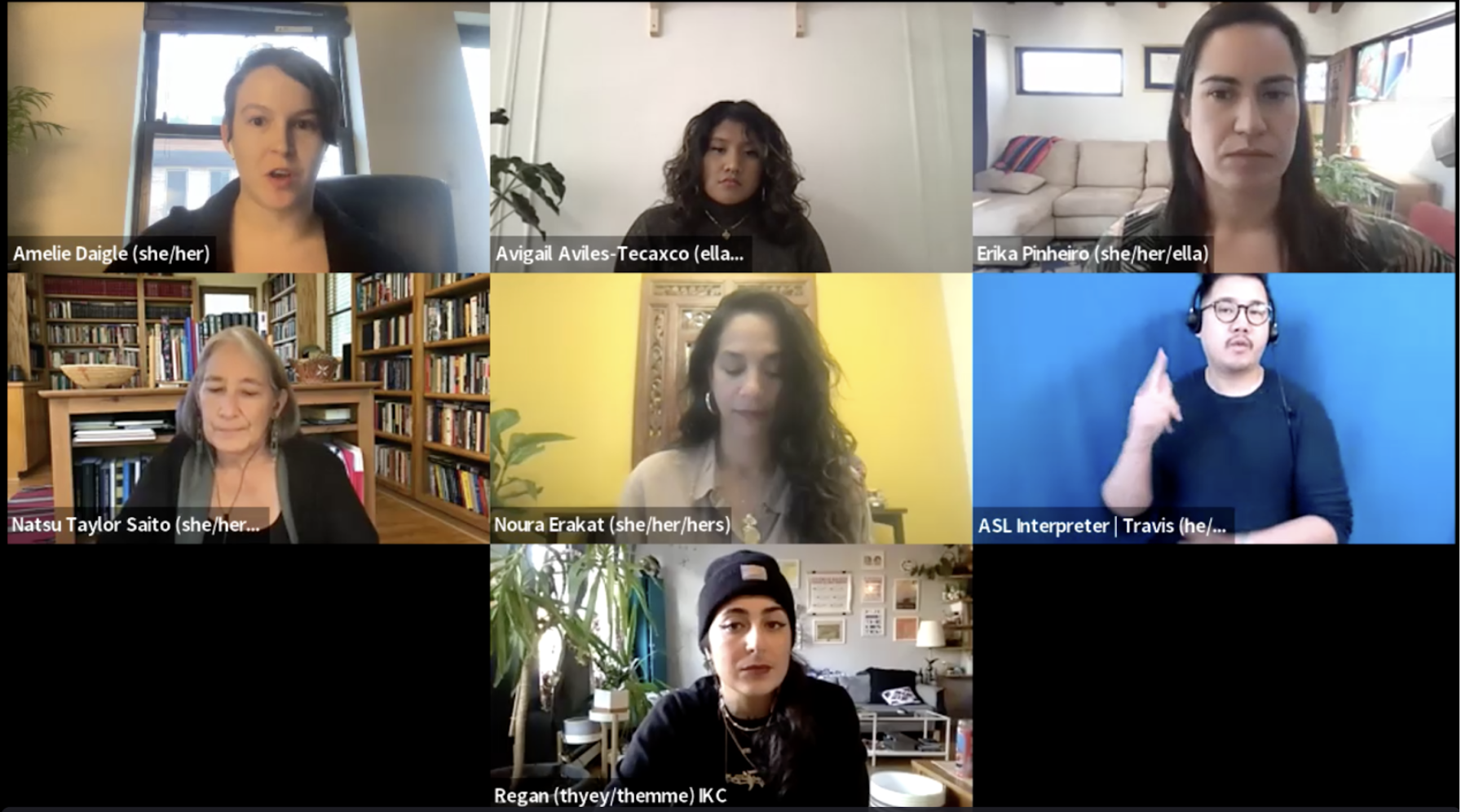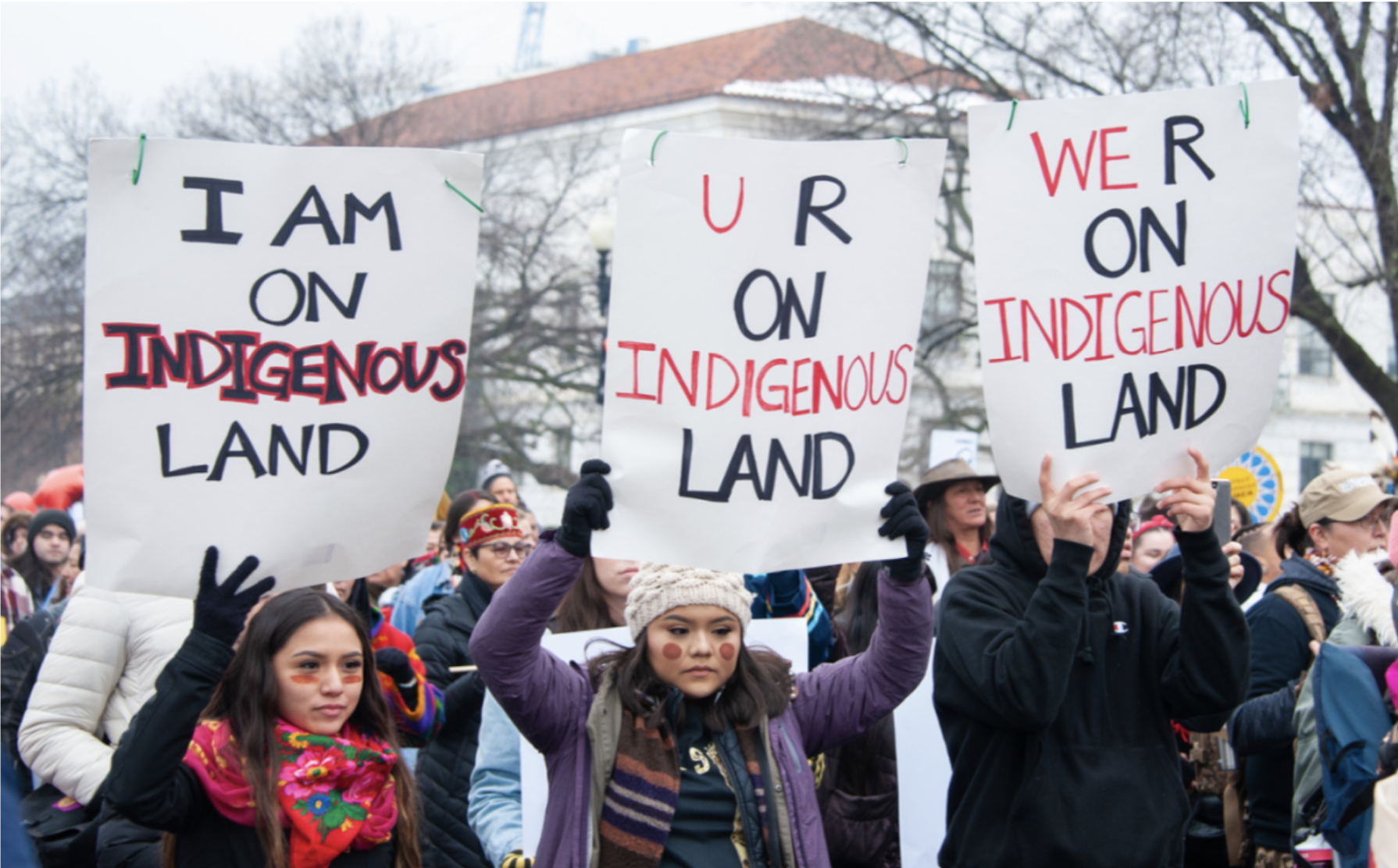RLSC Colloquium - Resisting Settler Colonialism
Opening remarks by Amelie Daigle and panelists Avigail Aviles-Texaco, Erika Pinheiro, Natsu Taylor Saito, Noura Erakat, and Regan Delogans (top left to bottom right)
Key Points
Settler colonialism is different from standard colonialism because it brings attention to the specific practice of land extraction by any means necessary and the potential removal of indigenous peoples
Settler colonialism continues today and contributes to the wide displacement of indigenous peoples
The only fair solution to those affected by settler colonialism is to make reparations to the indigenous communities that were displaced by returning stolen lands
Summary
On Feb. 9, 2022, 4:30 p.m. EST, the 2022 RLSC Colloquium - Resisting Settler Colonialism brought together organizers, legal practitioners and activist scholars to discuss the status of the United States as a settler colonialism state and analyze the different manners in which settler colonialism presents itself in U.S. laws and policies. The panel was moderated by Professor Natsu Taylor Saito, a professor at Georgia State University College of Law.
Saito opened the discussion by introducing the panel members and explaining the purpose of the two-part colloquium. She set the stage by outlining the discussion as a conversation about the theory and history of settler colonialism, and introduced how US law and culture maintains settler colonialism.
Panelists were asked to describe what settler colonialism is and elaborate on why we should care about it. Erika Pinheiro, litigation and policy director of El Otro Lado, explained the large difference between settler colonialism and classic colonialism. Pinheiro stated that the settlers in settler colonialism came to stay and create a new identity by enslaving indigenous people. She elaborated that as an immigration practitioner, borders are now used as “a filtering mechanism for who belongs and who doesn’t.”
Avigail Aviles, a community organizer from Queens, agreed with Pinheiro– saying that colonizers have the mentality that the indigenous people need to be displaced because they are bad, and this mindset is therefore used to justify harm. Regan Delogans, an indigenous artist and educator based in Brooklyn closed the response by stating, “The mythos of a benign American history is largely based on this idea that immigration was neutral. People came here to seek religious freedom, when in reality, white settlers came knowing there were indigenous populations and participated in mass genocide.”
Indigenous-led organization NDN Collective on Indigenous Peoples Day. Photo: Institute for Policy Research / Shutterstock
Saito then prompted the panelists to share contemporary examples they have encountered in their work that illustrate the problems caused by settler colonialism occupation.
Noura Erakat, an associate professor at Rutgers University and human rights attorney, talked about how she teaches a class whereby students learn how international law facilitated the expansion of empire and created a global racialized hierarchy. She said she wants students to understand that settler colonialism is not just one event, but an ongoing process of removal and dehumanization.
Aviles-Texaco and Delogans both gave examples from their experiences living in New York City. Aviles-Texaco stated that her community in Queens had to deal with being uprooted when Amazon wanted to relocate their headquarters to her home area, displacing a school and most of the community. Delogans elaborated, stating that New York City is the “epicenter of global capitalism.” They maintained that it is imperative that people understand how indigenous people are still being removed from their land to this day, despite it being taught in schools that the issue of indigenous displacement ended with traditional colonialism in the early 18th century.
Saito ended the discussion by asking panelists if they knew how to resolve such problems. Aviles-Texaco said that in the short-term she believes nonprofits can work to advocate for the creation of better laws and situations for indigenous people, but long-term solutions must involve land reparations. She stated that since these communities were firstly displaced, there is no way to repay them other than returning to them the land that was once theirs.
Aviles-Texaco also explained that the mutual aid network she works for helps support migrant women in Queens, which is a step in the right direction in supporting these communities. Delogans closed the discussion by agreeing with Aviles-Texaco and saying that there is no answer to the problem of settler colonialism other than the reduction of the seller state’s hold of indigenous land.
At this point in the discussion, questions from the audience were addressed. One attendee asked, “For those of us working in racial justice organizations within the US, how do we organize and push organizations to integrate the settler colonialism conversation as part of programmatic work that moves beyond just borders?"
Pinheiro addressed the question by stressing the importance of having forums with the affected communities so that they are able to set strategy themselves and discuss how and where resources can best be allocated within the organization. She affirmed that this was the best way to make sure these conversations are continued. Pineheiro further expressed that the people that you are trying to help have the best understanding of what they need, and we cannot afford to take that for granted.
This report was compiled by Alexis Tretschok on February 15, 2022, and edited by Sophie Slade.


